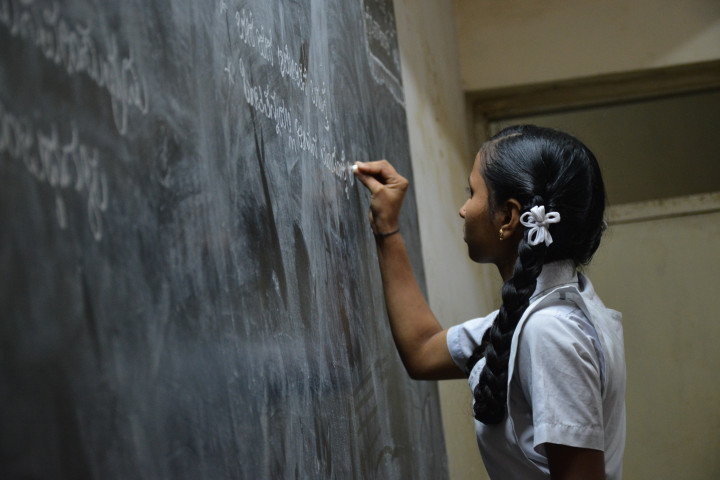Education is the right for every human being. Education helps
you understand equality and social justice.
The term “Inclusive Education” is a part of NEP 2020 and with it the
education system bridges the gaps in the learning access and participation outcomes.
In layman’s term it means that every child should have access to education under
one roof irrespective of whether they belong to any caste, religion, gender,
economic background or disability.
Under inclusive education policy all students welcome and
even support each other in the classroom. This way the learnings become
diversified. It is the responsibility of the teacher inside the classroom to
engage all the students in an activity-based environment.
Inclusive education or Unbiased Teaching helps students to
improve their communication skills, socio-emotional skills, and cognitive
skills. It even reduces the discrimination against the child who is from low-income
group, or specially-abled category child. He/she will get the same access,
equity, and the right to education.
Challenges of Inclusive Education
There are many different factors for which the enrolment of
specially-abled children, underprivileged children, students from ST and SCs and
female children in schools are decreasing. They are:
·
Quality
schools
·
Social
customs
·
Lack
of enthusiasm in teachers
·
Poverty
·
Language
barrier
·
Less
number of special educators in schools for specially-abled children
·
Geographical
factor
·
Education
system irrelevant to tribal children
What measures are listed in NEP 2020 about Inclusive
Education?
- For tribal communities, several
initiatives have to be taken toward programmatic interventions. It uplifts the
tribal communities’ children.
- Schools have to make specific
mechanism so that tribal students get benefits from these programmes’
inclusion.
- For minority group schools must
promote education and its overall importance.
- The policy provides Divyang or
Children with Special Needs (CWSN) the perfect mechanism that will help to
provide quality education with same opportunity like any other child.
- Reduce social gaps with the
formulation of separate strategies. It improves attention and focus.
- Socio-Economic Disadvantaged Groups
must get the critical solutions on ECCE, FLN, attendance, enrolment and
education access.
- Introduction peer tutoring, one-to-one
teacher, student tutor, open school idea, age-appropriate infrastructure,
relevant technology integration for Children with Special Needs.
- Social workers and counsellors must
connect with parents, children, teachers to increase the enrolment and
attendance of the students and teachers in schools.
- To meet the geographical limitation,
the region with big number of populations that comes under low-economic group
must be declared SEZs (Special Education Zone)
- Introduction of specific schemes and
policies and Gender-Inclusion Fund for girls and transgender students
respectively to increase the number of these students in the school.
- Introduction of free boarding
facility for students who come from a long distance to school and also fall
under low-income group.
- Participation of Children with
disabilities must be regular in schooling process from Foundational Stage to
Higher Education.
- Recruitment of special educators are
must for children with disabilities. Depending upon the children’s disability,
the special educator must be appointed.
- Classrooms must be inclusive like age
and language appropriate learning materials, both for academic and co-curricular
activities.
- NIOS will introduce modules that are
of high quality so that teachers can teach Indian Sign Languages.
- Measures to be taken for safety and even
security of the children with disabilities.
- Teaching must include gender
sensitivity and awareness, knowledge to teach specially-abled children.
- Teaching must include gender sensivity and awareness, knowledge to teach specially-abled children.
Schools must encourage and join hands
with Ministry of Défense to open NCC Wings.
Conclusion
Above all these measures that NEP 2020 talk about, are
important to bring a change in school culture and this is the only thing that
is constant. To bring forth the inclusive education, all the administrators,
principals, teachers, counsellors and students must work hand-in-hand. This
type of educational culture helps the students to establish as a knowledgeable
individual who will later transform the society and become a responsible
citizen. Also, schools must appoint teachers, coordinators and leaders from socio-economic
challenged background to establish a better role model for students.
Posted On: 27/7/2023
